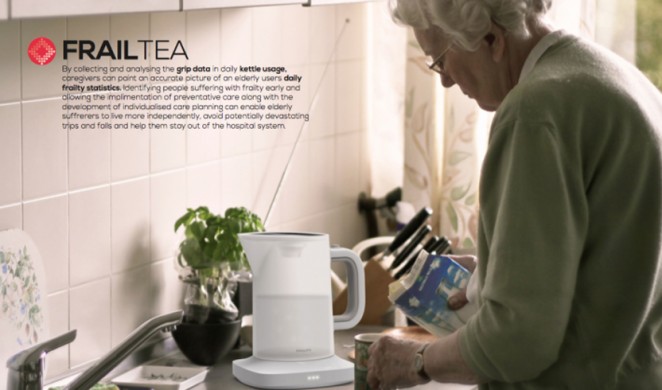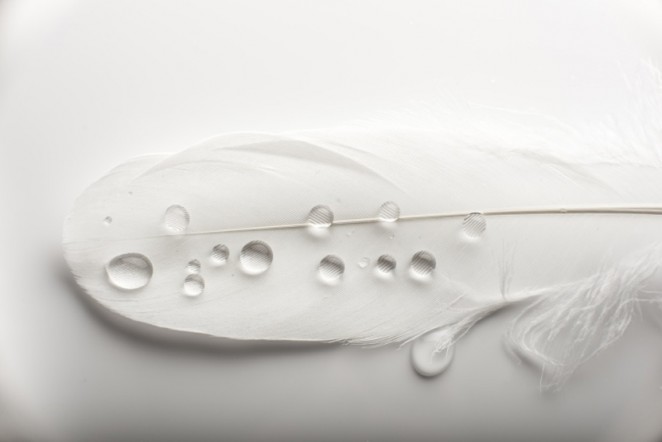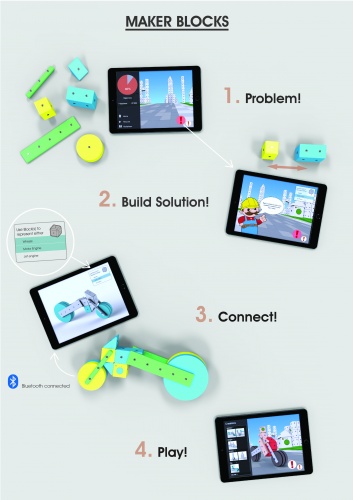This year’s winners of the world’s longest-running global student competition, the RSA Student Design Awards, were announced last week, and include a kettle that collects grip data to measure frailty, a new insulation material made from feather waste, a wearable FinTech personal budget management solution, and a medical icon kit for disseminating medicine in low literacy areas. Now in its 92nd year, the RSA Student Design Awards is the longest running student design competition in the world, challenging young people across the globe to tackle real-world issues facing society, the environment and business. The competition is open to university students and new graduates from all disciplines, who can work individually or collaborate in teams to apply their skills in new ways; the winning entries this year show students using design in the context of social and economic innovation, sustainability and international development.
“Congratulations to the thousands of students around the world who took part in this year's RSA Student Design Awards and to those using design as a force for good in designing our futures” Rebecca Ford, Manager of the RSA Student Design Awards
The 2015/16 competition comprised 12 different briefs which were developed in partnership with industry sponsors from RBS, Airbnb, Unilever, Waitrose, Philips, GSK, Fazer, PriestmanGoode, The Eden Project, the Office for Disability Issues, BuroHappold Engineering, Springetts, Materials Council and Natracare. This year’s brief topics included designing ways to radically reducing food waste, empowering people to manage their money better, improving healthcare provision in Sub-Saharan Africa and designing more frugal and sustainable ways of bathing. The 36 winners represent 19 countries, underlining the wide reach of the competition, and were chosen from over 900 entries. Their proposals were judged by leading designers and industry experts in a rigorous 2-stage process: anonymous offline shortlisting, followed by face to face interviews with finalists. Six criteria had to be met to win: social and environmental benefit, execution, research, design thinking, commercial awareness, and the least tangible but perhaps most important: magic. Below we've picked out a few of the most interesting winners.
FrailTea

Northumbria University’s Callum Smith created the FrailTea system, which helps give an accurate picture of elderly patients frailty statistics through their daily kettle usage. Smith’s kettle collects and analyses the grip data created when it’s used, to identify people suffering with frailty early, allowing preventative care. The device also provides caregivers with a more accurate picture of a patients frailty statistics, so they are getter equipped to provide the right care. The project fell under The Good Life brief, sponsored by Philips, which aims to help people with long-term, lifestyle-related health conditions take a greater role in managing their own care.
Aeropowder

For the One Man’s Waste brief, Elena Dieckmann of the Royal College of Art teamed up with Ryan Robinson of the Imperial College London. Dieckmann’s degree in Innovation in Design Engineering combined with Robinson’s Biology degree led them to combine their knowledge and create a novel insulation material Aeropowder, which is made from feather waste material. It is has the same performance as synthetic insulation products but is more eco-friendly as it uses a waste product. A range of different products and materials made from feather waste material are currently in development. The One Man's Waste brief is sponsored by the Patricia Tindale Legacy and the Eddie Squires Legacy, in partnership with the Materials Council and with additional support from Springetts and Natracare. The brief was to design a way to help eliminate the concept of waste within developed societies by promoting it as a valuable material resource.
Maker Blocks

Sam Hemming, of Loughborough University, designed his Maker Blocks for the Making It Inclusive brief, sponsored by an anonymous donor, which challenged students to enable more people to enjoy the benefits of making. The Maker Blocks is a virtual city building game played on a tablet device, which targets 7-12-year olds and joins together the worlds of online and offline gaming. The game requires players to use physical making skills to construct things that then feed back into the virtual game. Players can see their friends’ virtual creations or build cities together, and the physical building aspect allows parents to interact with their children through making.
Painterly Flow
Painterly Flow
Graphic Design & Illustration student Sharon Ross at the Ulster University won the Foster Award for her animation for the Moving Pictures brief, Painterly Flow. Created to complement Professor Richard Sennett’s speech about how we need to focus on wanting less in order to save the environment, the childlike, captivating film makes the concept easy to grasp. The painterly animation (above) is based on principles of minimalism, reduction and transition that aims to inspire people to think further about issues to do with climate change and modern society.
Medical Symbol Language Kit

The RSA Fellows’ Award went to Jonathan Stannard of Blackpool & the Flyde College, for his Medical Symbol Language Kit. The kit, meant for pharmacies, is made up of stickers, posters and instruction sheets to help patients with low literacy know when to take their medicine, and how much of it to take. The long-term goal is also to help medication misuse, which can eventually lead to global issues like antibiotic resistance. The straight-forward, clean design of the kit makes it not just visually striking but hopefully also effective.
A full list of the winners can be found HERE. The 2016 Awards will be celebrated at a special ceremony, “Designing our Futures: The 2016 RSA Student Design Awards,” on June 20 at the RSA’s headquarters in London, including a keynote address by past RSA Award Winner and current Global VP of Advanced Innovation at Nike, Richard Clarke.






